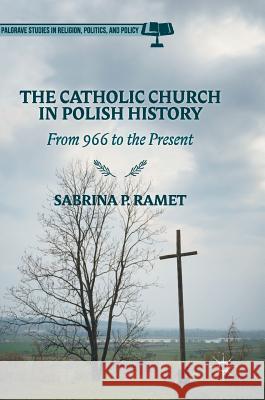The Catholic Church in Polish History: From 966 to the Present » książka
topmenu
The Catholic Church in Polish History: From 966 to the Present
ISBN-13: 9781137426222 / Angielski / Twarda / 2017 / 300 str.
Kategorie BISAC:
Wydawca:
Palgrave MacMillan
Seria wydawnicza:
Język:
Angielski
ISBN-13:
9781137426222
Rok wydania:
2017
Ilość stron:
300
Waga:
0.68 kg
Wymiary:
21.01 x 14.81 x 2.69
Oprawa:
Twarda
Wolumenów:
01
Dodatkowe informacje:
Wydanie ilustrowane











